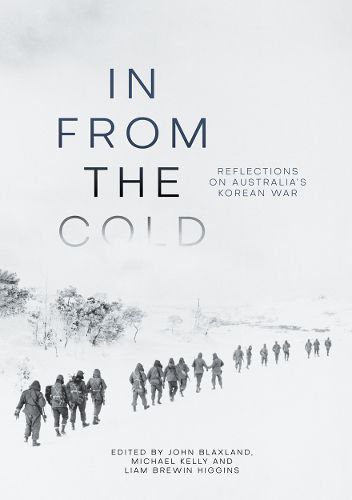Readings Newsletter
Become a Readings Member to make your shopping experience even easier.
Sign in or sign up for free!
You’re not far away from qualifying for FREE standard shipping within Australia
You’ve qualified for FREE standard shipping within Australia
The cart is loading…






Open hostilities in the Korean War ended on the 27th of July 1953. The armistice that was signed at that time remains the poignant symbol of an incomplete conclusion - of a war that retains a distinct possibility of resuming at short notice.
So what did Australia contribute to the Korean War from June 1950 to July 1953? What were the Australians doing there? How significant was the contribution and what difference did it make? What has that meant for Australia since then, and what might that mean for Australia into the future?
Australians served at sea, on land and in the air alongside their United Nations partners during the war. They fought with distinction, from bitterly cold mountain tops, to the frozen decks of aircraft carriers and in dogfights overhead. This book includes the perspectives of leading academics, practitioners and veterans contributing fresh ideas on the conduct and legacy of the Korean War. International perspectives from allies and adversaries provide contrasting counterpoints that help create a more nuanced understanding of Australia’s relatively small but nonetheless important contribution of forces in the Korean War. The book finishes with some reflections on implications that the Korean War still carries for Australia and the world to this day.
$9.00 standard shipping within Australia
FREE standard shipping within Australia for orders over $100.00
Express & International shipping calculated at checkout
Open hostilities in the Korean War ended on the 27th of July 1953. The armistice that was signed at that time remains the poignant symbol of an incomplete conclusion - of a war that retains a distinct possibility of resuming at short notice.
So what did Australia contribute to the Korean War from June 1950 to July 1953? What were the Australians doing there? How significant was the contribution and what difference did it make? What has that meant for Australia since then, and what might that mean for Australia into the future?
Australians served at sea, on land and in the air alongside their United Nations partners during the war. They fought with distinction, from bitterly cold mountain tops, to the frozen decks of aircraft carriers and in dogfights overhead. This book includes the perspectives of leading academics, practitioners and veterans contributing fresh ideas on the conduct and legacy of the Korean War. International perspectives from allies and adversaries provide contrasting counterpoints that help create a more nuanced understanding of Australia’s relatively small but nonetheless important contribution of forces in the Korean War. The book finishes with some reflections on implications that the Korean War still carries for Australia and the world to this day.